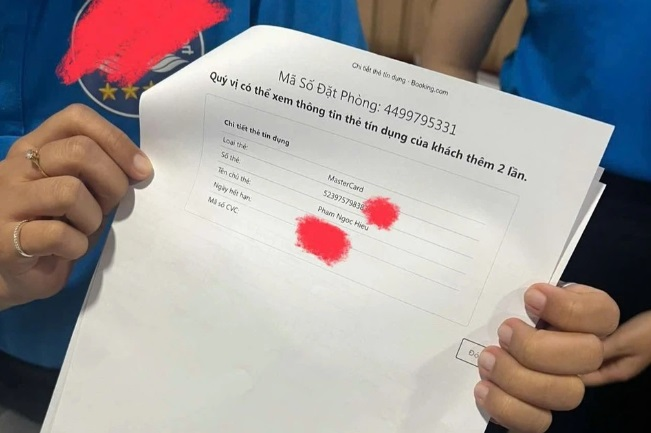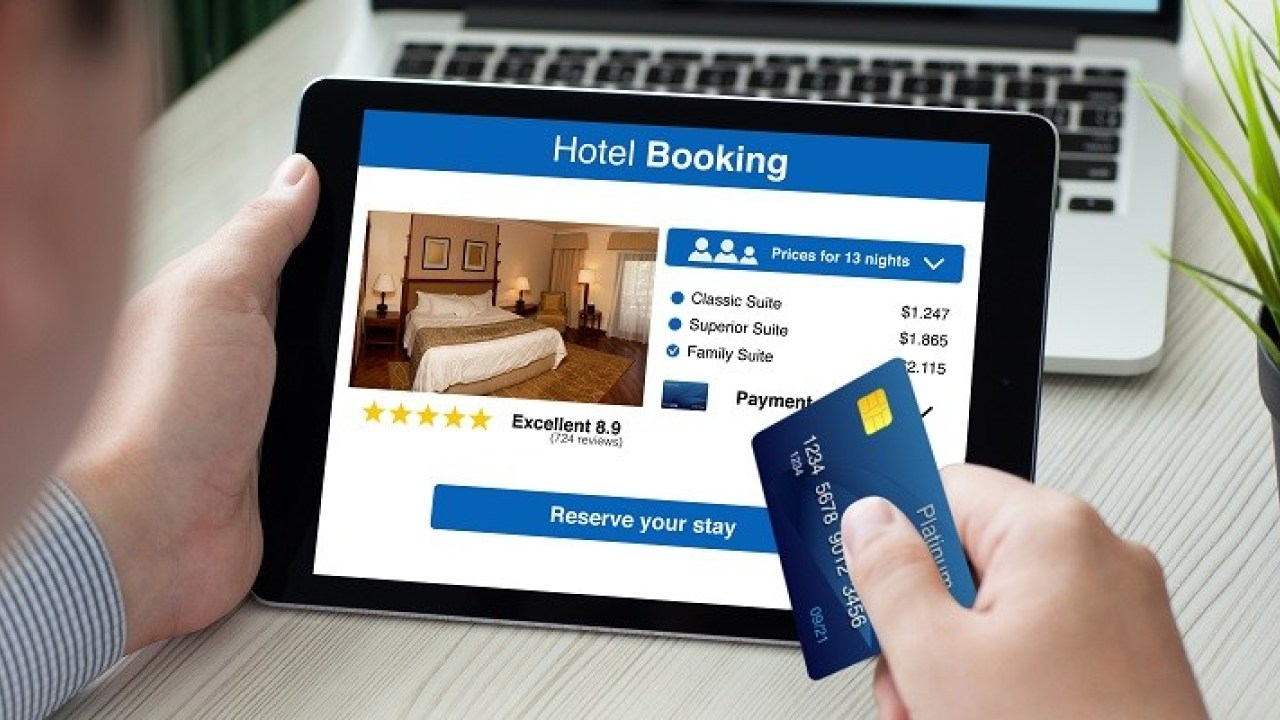With the upcoming 4-day National Day holiday on the 2nd of September, many people are opting for travel and leisure activities, and online hotel and resort bookings have become a popular choice due to their convenience and speed. Most travelers will search for information and book accommodations through online travel agencies (OTAs) such as Agoda, Booking.com, Airbnb, Trivago, and Mytour. These platforms offer a seamless experience by allowing users to compare prices, read reviews, and book with just a few simple clicks.

However, concerns have been raised recently regarding the security of personal information when using these online booking platforms. A recent incident caused a stir in the travel community when a customer took to social media to express frustration over a hotel having access to their full information booked through App A. According to the customer, their credit card details, including the security code, were revealed to the hotel. While the online travel agency in question has not yet addressed the issue, it has sparked intense debates on travel forums.

Customer’s credit card information printed out by the hotel. (Photo: HN)
Previously, several travelers had also reported incidents of personal information leaks while using other travel websites. These occurrences have prompted the question: “Is booking directly with hotels a safer option?”
Booking Directly with Hotels: Safer but Not Without Drawbacks
In light of these concerns, many travelers are considering reverting to the traditional method of booking directly with their chosen hotels. This approach is seen as safer since personal information typically remains solely with the hotel. By bypassing intermediaries such as online booking platforms, the risk of personal information leaks is reduced. Additionally, direct bookings can sometimes result in special offers or enhanced customer service due to the direct relationship between the customer and the hotel.


Illustrative image
However, booking directly with hotels also has its drawbacks. Firstly, comparing prices between different hotels can become more challenging. It requires more time and effort to contact and inquire about each hotel individually, which is less convenient than using travel platforms that offer simultaneous price comparisons. Secondly, during peak travel seasons or major holidays, not booking directly and promptly might result in unavailability, especially at popular destinations.
Booking through OTAs: Convenient but Caution is Necessary
On the other hand, booking through travel platforms offers unparalleled convenience. With just a few clicks, users can effortlessly search, compare prices, and choose from hundreds or even thousands of hotels worldwide. Additionally, customer reviews and experiences provide valuable insights to make informed decisions about the quality of services offered by each hotel.

Illustrative image
However, this convenience does not always guarantee absolute security. Recent security breaches have highlighted the potential risks associated with booking through online travel agencies. Some platforms may store credit card information and other personal data without adequate security measures, leaving them vulnerable to malicious attacks and data theft.
Which Booking Method Should You Choose?
There is no definitive answer to the question, “Is it safer to book directly with hotels or through travel agencies?” Both methods have their advantages and disadvantages. If you prioritize the security of your personal information, booking directly with hotels might be the preferred option. When booking directly, your information remains solely with the hotel, bypassing intermediaries. However, if you encounter a leak even after booking directly, here’s what you should do:
– Contact the hotel immediately and request a resolution.
– Report the incident to the relevant authorities if sensitive information has been compromised.
– Change passwords and update security measures.
– Contact your bank to block your card and check for unusual transactions.
– Monitor your accounts and transactions closely for any suspicious activity.
– Seek compensation for any financial or emotional damages incurred.
– Share your experience to raise awareness and encourage hotels to improve their security measures.

Illustrative image
On the other hand, if convenience and a wider range of options are your priorities, online travel agencies remain a valuable tool. They offer a seamless experience by enabling users to search, compare, and book from thousands of accommodations while providing customer reviews for informed decision-making. However, it is crucial to remain vigilant about your personal information when using OTAs. Opt for reputable platforms, read their terms of service and privacy policies carefully, and employ security measures such as two-factor authentication to safeguard your personal information.
Ultimately, the choice between booking directly with hotels or through travel agencies depends on individual preferences for safety and convenience. It is essential to weigh these factors carefully, especially during peak travel seasons, to ensure a smooth and enjoyable journey.














